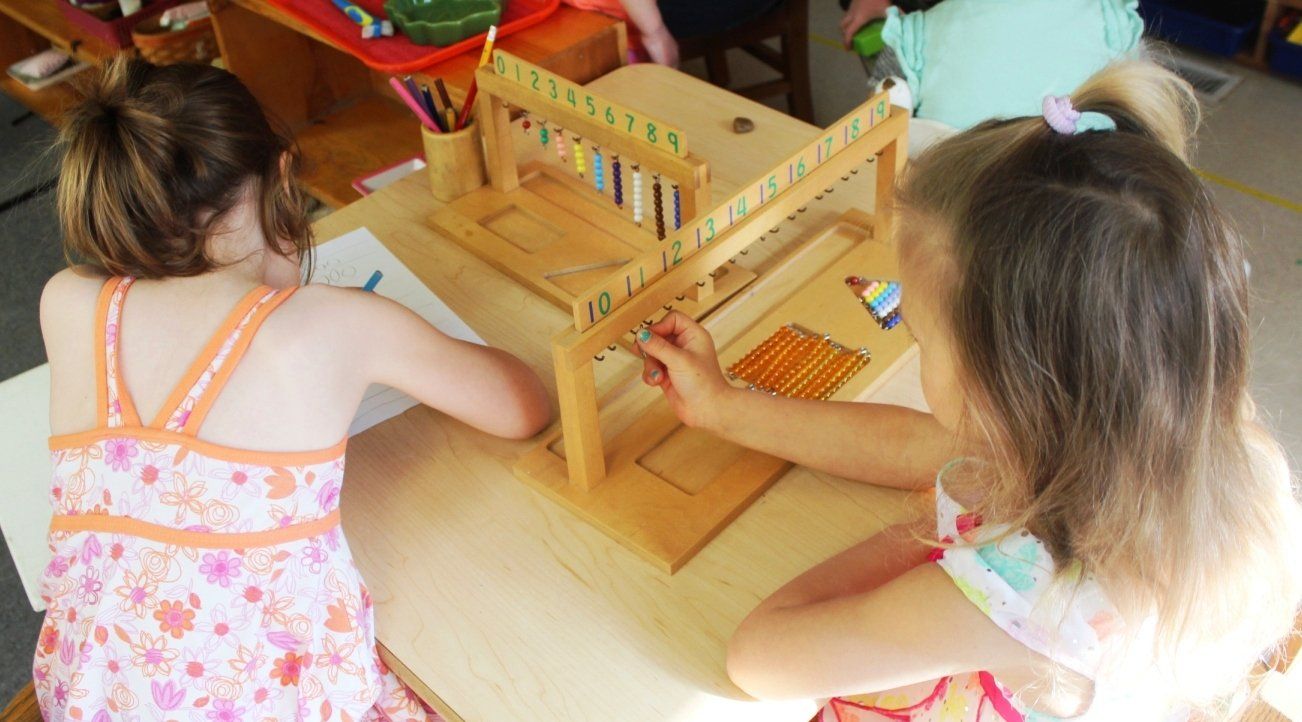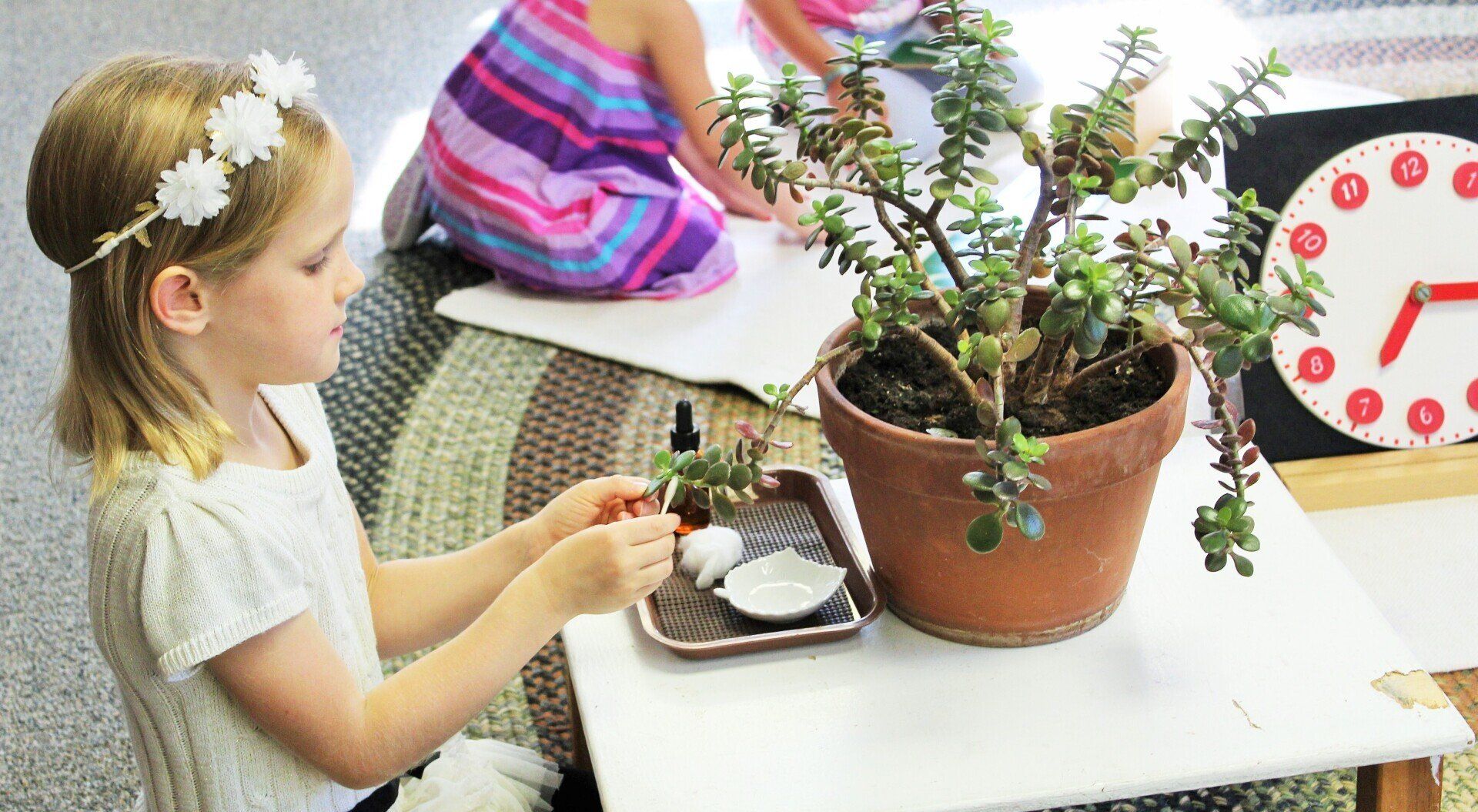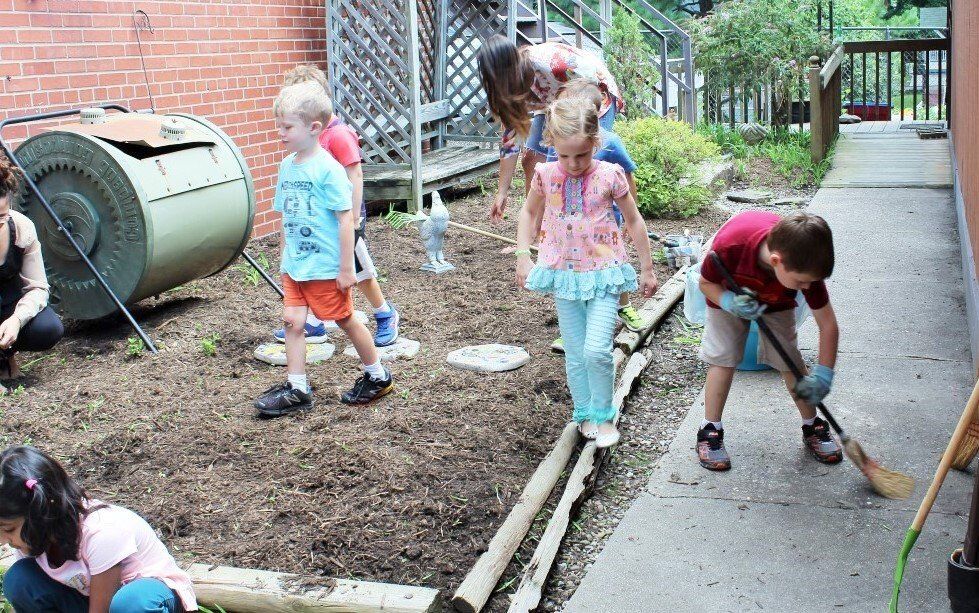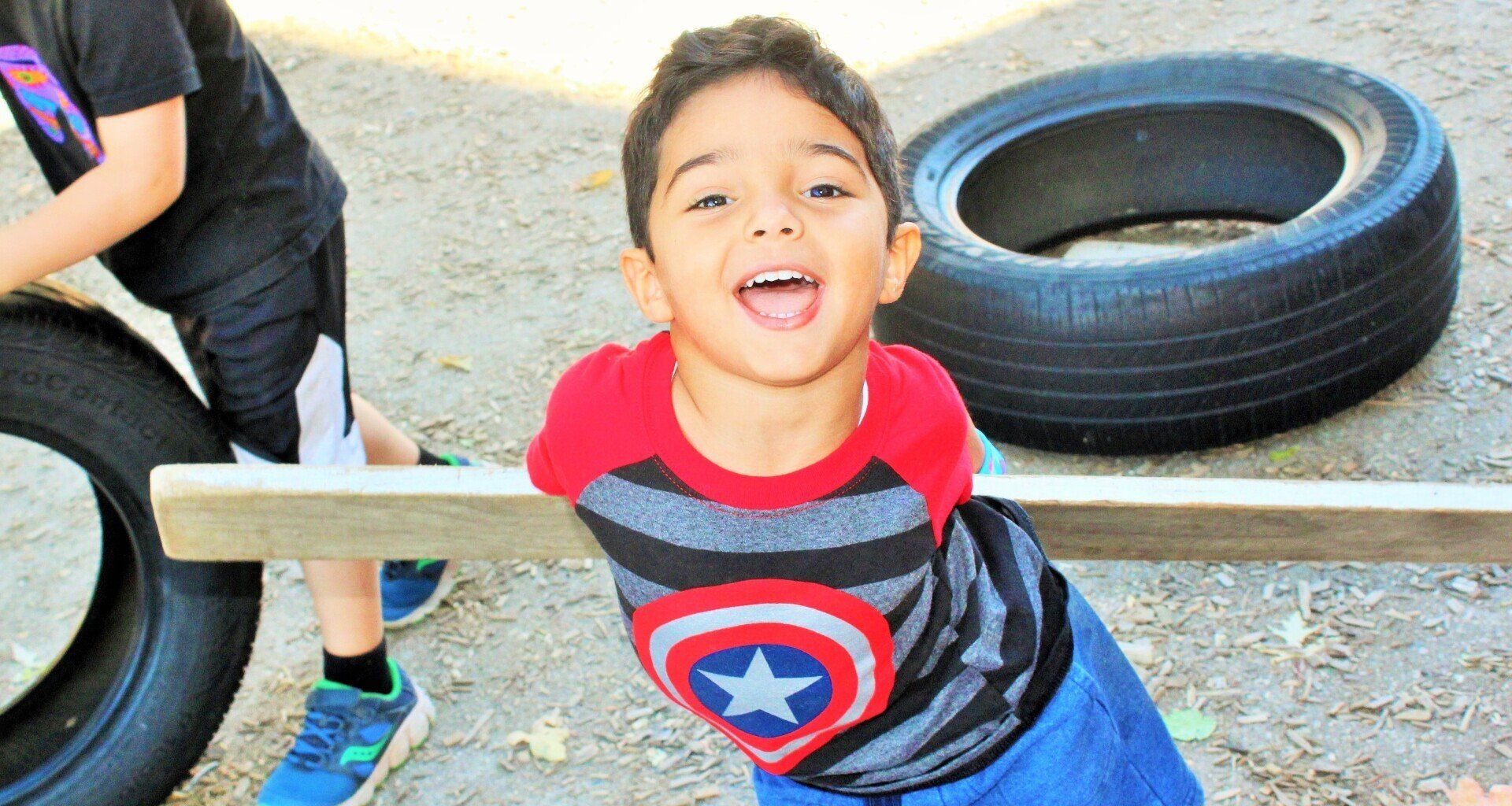Primary
3 - 6 years

“Free the child’s potential and transform him into the world.” Maria Montessori
Montessori is a child-centered, evidence-based approach to education that grows from Dr. Maria Montessori’s scientific observations of young children more than a century ago at the Casa de Bambini, a school she founded for underprivileged children in Rome. The entire Montessori program, including materials, lessons, classroom environment, and student-teacher dynamic, is designed to meet the specific intellectual, social and emotional needs of children at each stage of their development, from infancy through adolescence.
Montessori works with — not against — human nature to nurture a child’s natural desire to learn. Dr. Steven Hughes, president of the American Academy of Pediatric Neuropsychology, calls Montessori the first brain-based approach to learning because it is based upon scientific principles of human development.
A foundation for a lifetime of learning
“The goal of early childhood education should be to activate the child’s own natural desire to learn,” Maria Montessori said. The Montessori primary program, considered by many as the gold standard for early childhood education, guides children to:
- Pursue their innate desire to explore and learn
- Develop intellectually, physically, emotionally, and socially
- Become independent, confident, and self-motivated
- Develop a lifetime love of learning
- Care for themselves, their environment, and community
A “laboratory for learning”
The three-to-six year old is a very active and eager student. The Montessori classroom environment has been called a “laboratory for learning,” designed around principles of child development to engage young children in purposeful exploration and discovery.
A morning at Mountaineer Montessori
Montessori primary curriculum
Practical Life
Children learn daily-life skills, such as how to get dressed, prepare snacks, set the table, and care for plants and animals. They also learn appropriate social interactions, such as saying please and thank-you, being kind and helpful, listening without interrupting, and resolving conflicts peacefully. In addition to teaching specific skills, Practical Life activities promote independence, and fine- and gross-motor coordination.
Sensorial
Children refine skills in perceiving the world through their different senses, and learn how to describe and name their experiences—for example, rough and smooth, perceived through touch. Sensorial learning helps children classify their surroundings and create order. It lays the foundation for learning by developing the ability to classify, sort, and discriminate—skills necessary in math, geometry, and language.
Math
Through hands-on activities, children learn to identify numerals and match them to their quantity, understand place-value and the base-10 system, and practice addition, subtraction, multiplication, and division. They also explore patterns in the numbering system. With an exploratory approach, children do more than just memorize math facts; they gain a firm understanding of the meaning behind them.
Language
Activities throughout the Early Childhood classroom teach language, help children acquire vocabulary, and develop skills needed for writing and reading. The ability to write, a precursor to reading, is taught first. Using hands-on materials, children learn letter sounds, how to combine sounds to make words, how to build sentences, and how to use a pencil. Once these skills are acquired, children spontaneously learn to read.
Cultural Studies
A wide range of subjects, including history, geography, science, art, and music, are integrated in lessons in the cultural area of the curriculum. Children learn about their own community and the world around them. Discovering similarities and differences among people and places helps them develop an understanding and appreciation of the diversity of our world, and a respect for all living things.
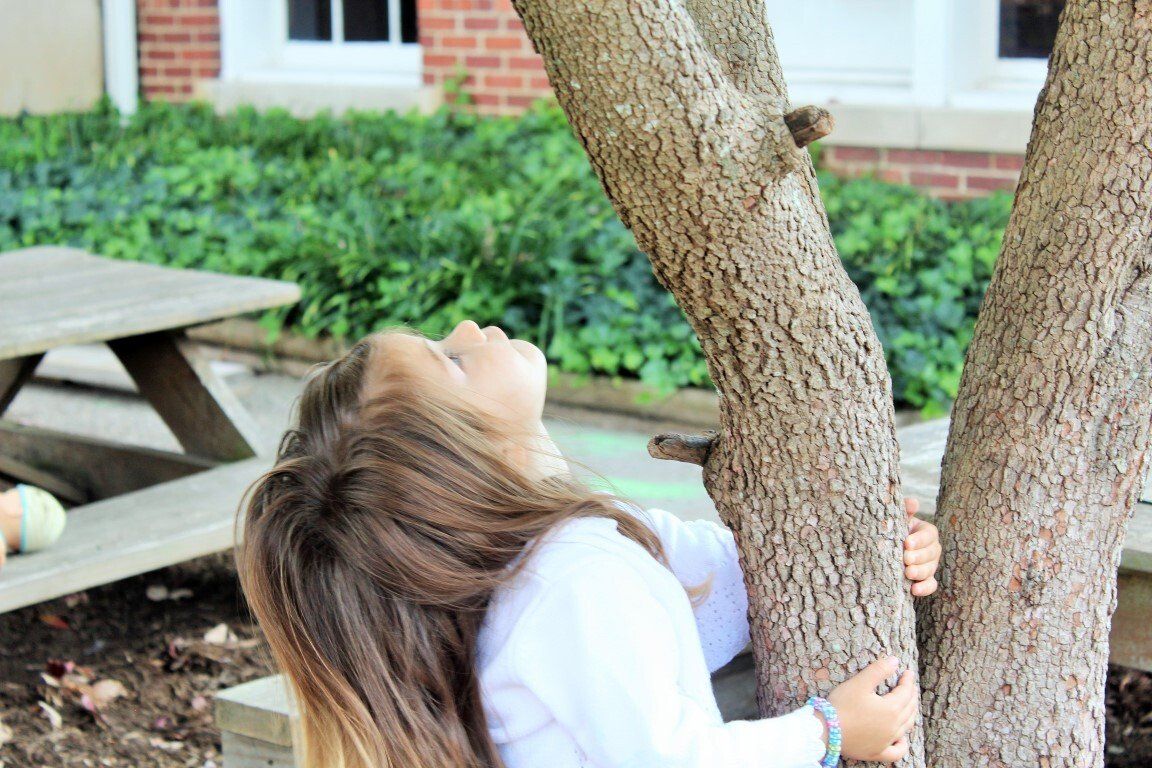
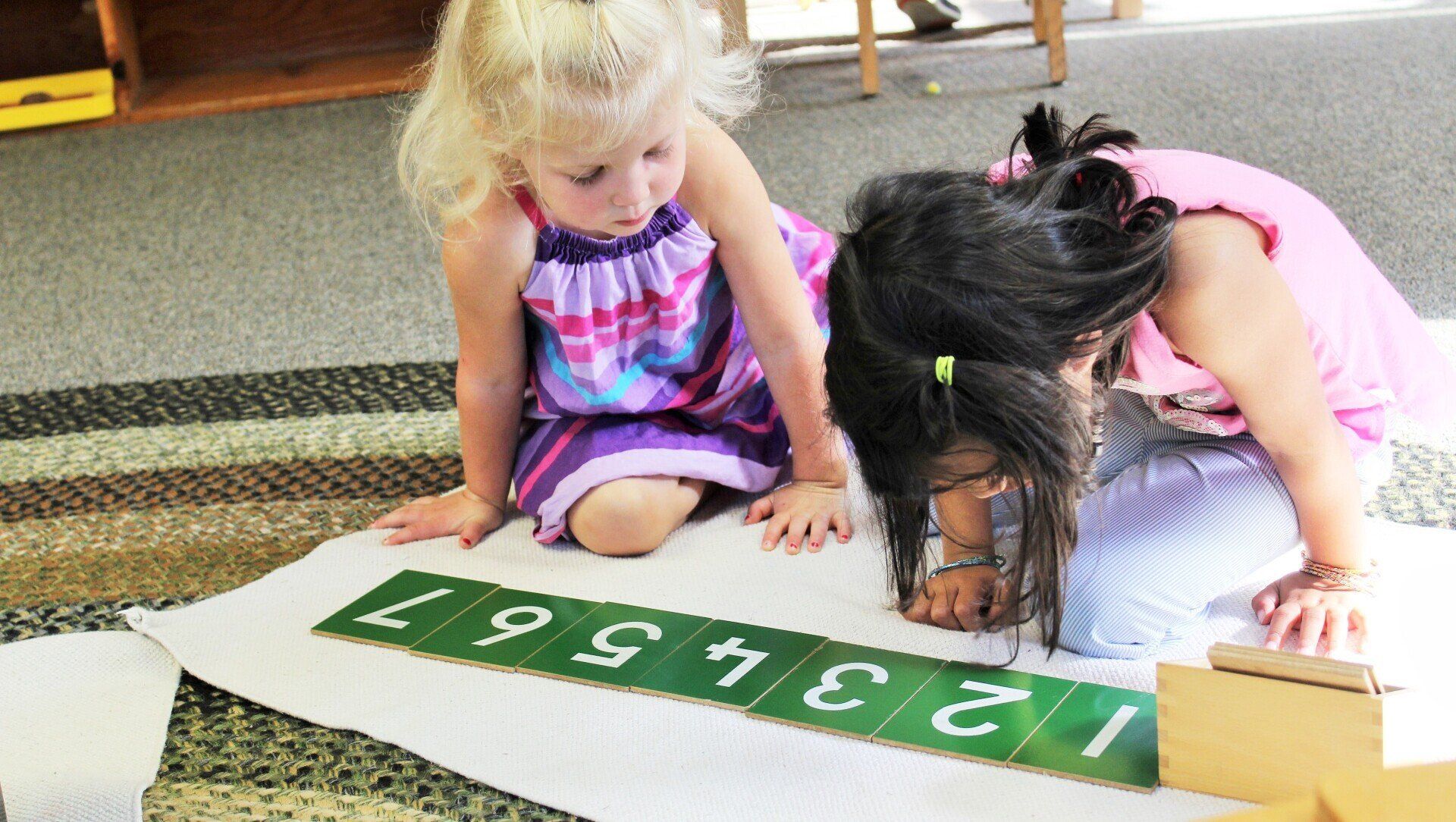
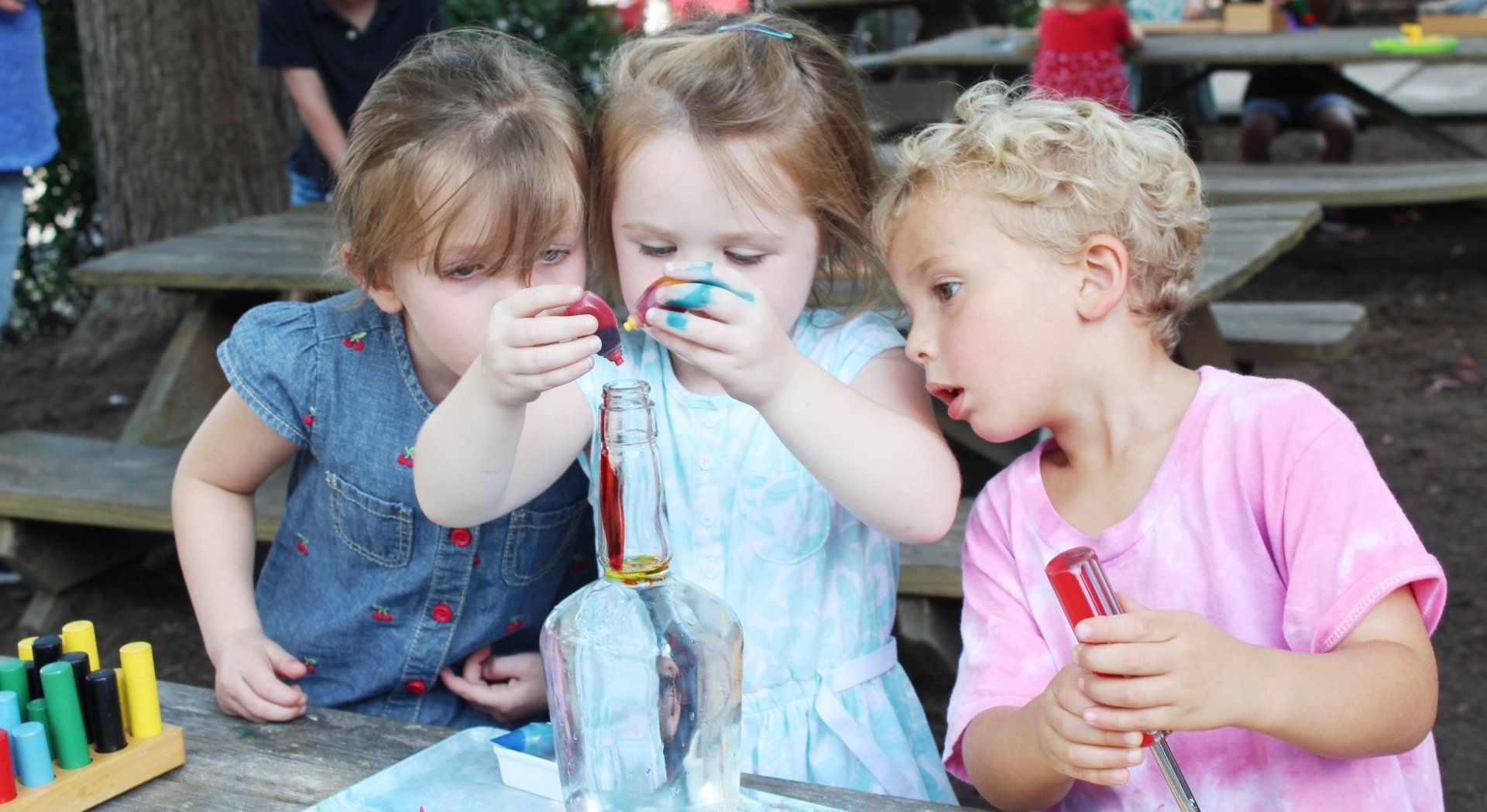
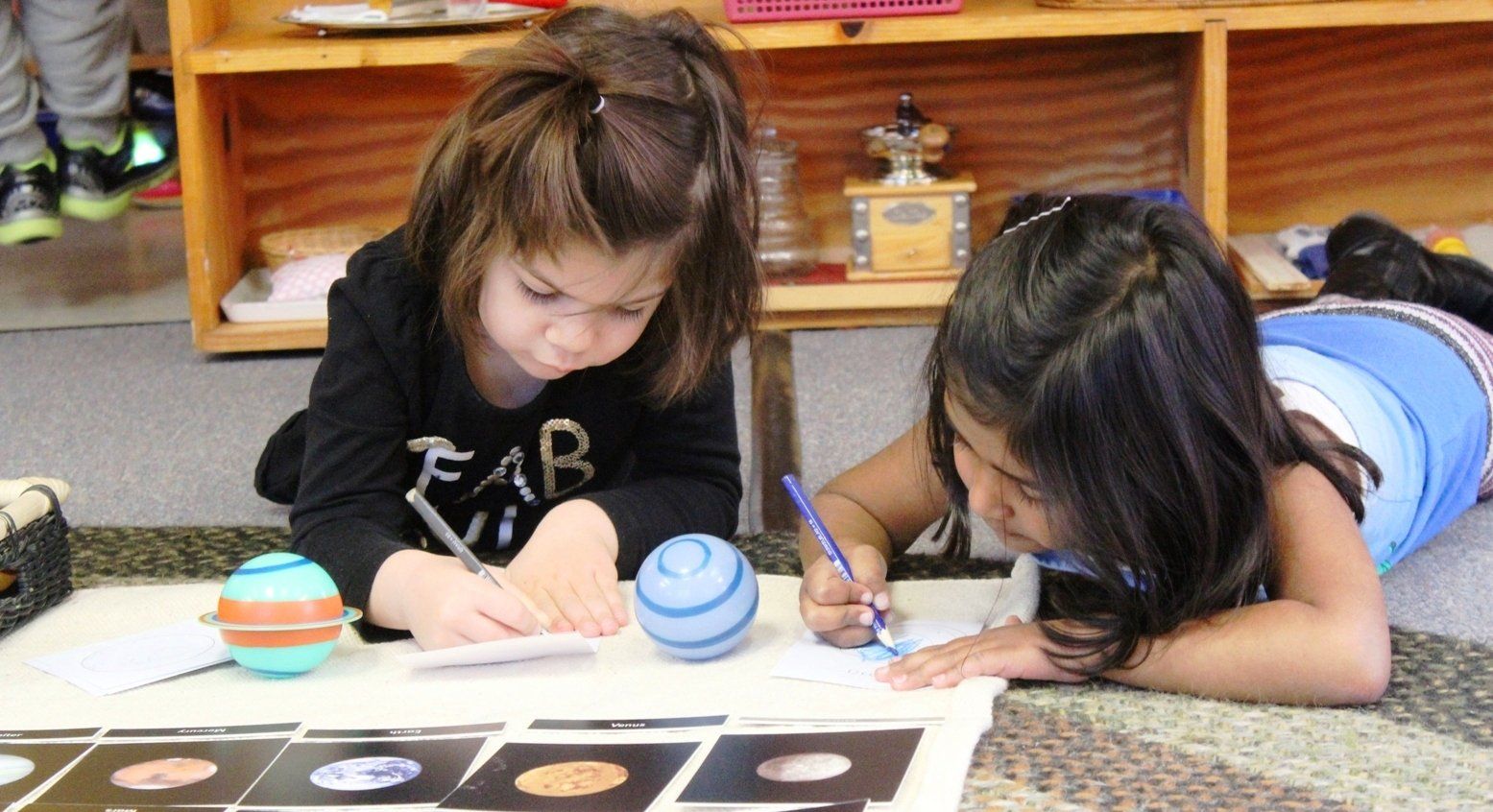
Primary class schedule
Primary students attend class five days per week.
- Children ages 3 through 4-1/2 years attend in the mornings (8:00-11:45 a.m.) with the option of remaining in the classroom for our All Day Montessori program through 2:45 p.m.
- Children ages 5 through 6 years attend 8:00 a.m.-2:45 p.m.
- After school care through 5:30 p.m. is available for all Primary students.
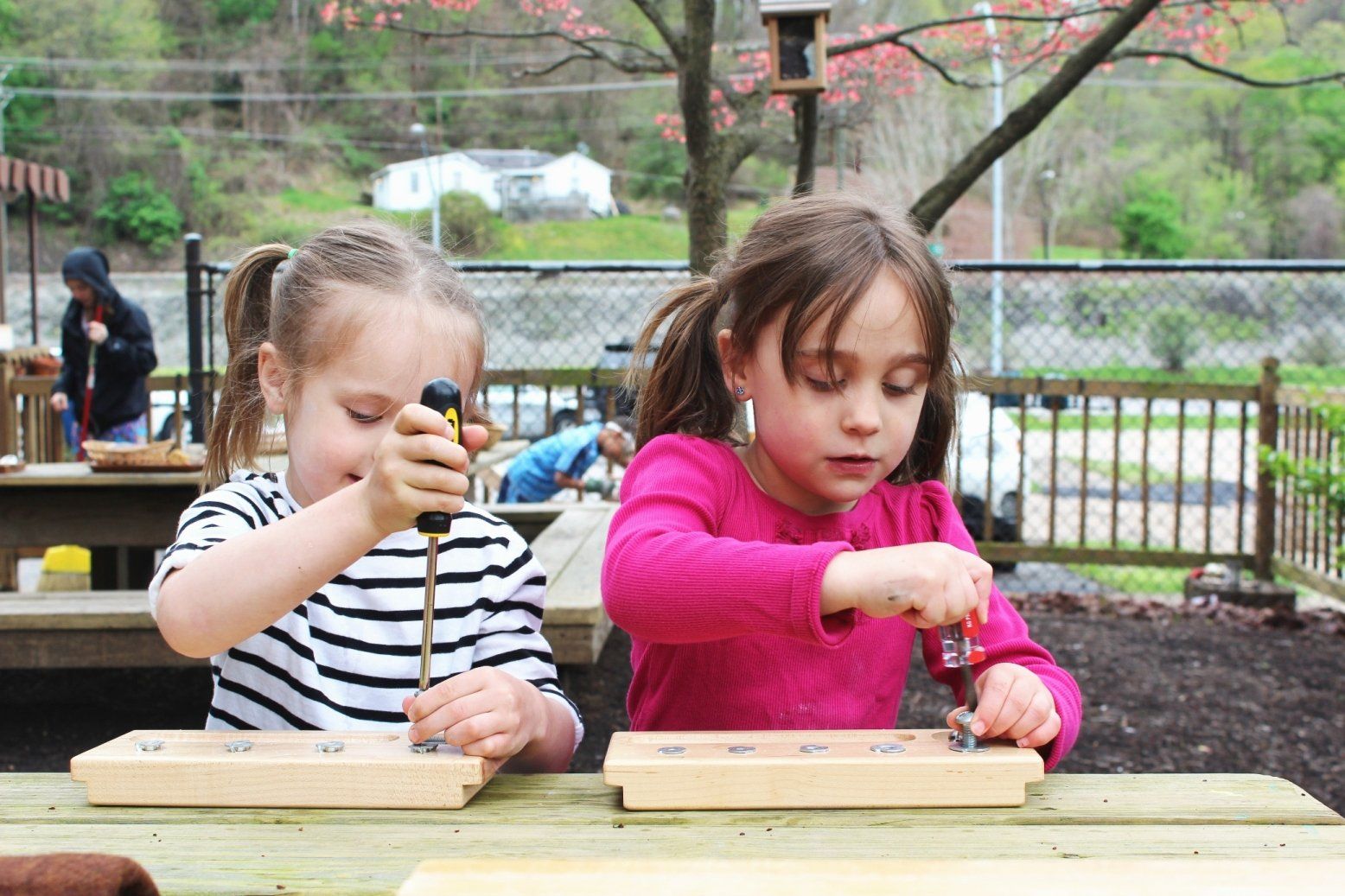
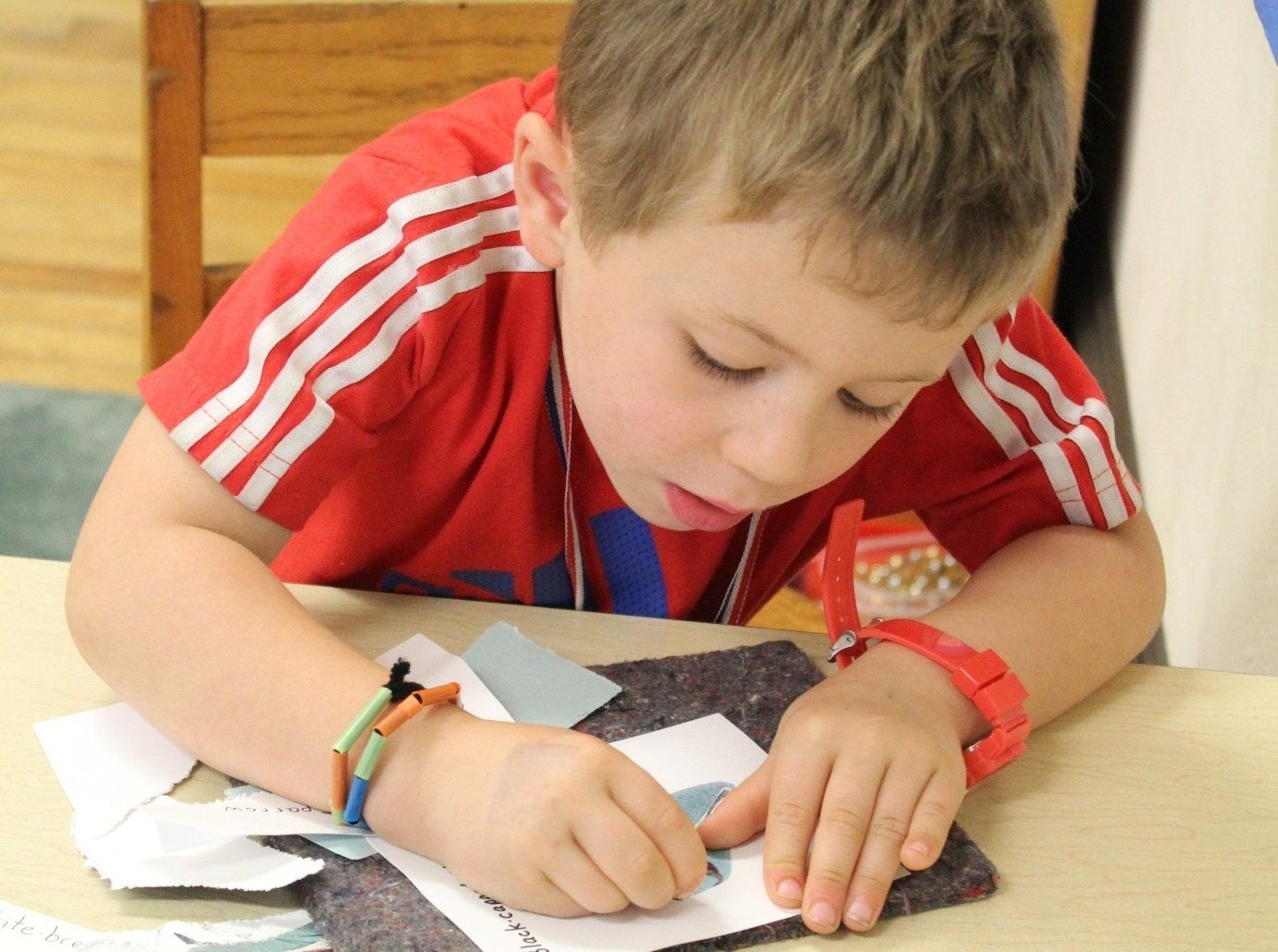
“I chose Montessori because the curriculum challenges students and allows them to experiment and engage with subjects in a unique way. My favorite thing about the school is how students learn, how they have a say in what they learn, which allows them to feel invested in their education and their future.”
- Nasrin Zanabli
Academic preparation
Peer-reviewed research finds that children with a Montessori primary education outperform their traditional school counterparts in reading and math and demonstrate higher levels of “executive skills” (including independence, problem-solving, critical thinking, and collaboration) that lead to future academic and social success. We invite you to learn more about Montessori outcomes and our alumni.
Follow the child
Children work at their own pace using beautiful, research-based materials and lessons that inspire interest and encourage appreciation of beauty and order. Students are given individual presentations on the materials and are free to choose from a wide choice of activities.
Love of community…love of learning
Our faculty closely observe each child’s level of readiness for the next lesson and guide him or her through the comprehensive Montessori curriculum. Children also engage in daily group experiences in order to build community and to develop their social skills. Most importantly, children in the primary classroom develop a love of their school community and a love of learning, finding peaceful joy in their pursuit of knowledge.
Learning through movement
“Watching a child makes it obvious that he learns through movement.” Maria Montessori
Movement is a major component of the MMS primary curriculum, supporting students’ physical, social, emotional, and intellectual development. Daily outdoor sessions offer children the opportunity to develop gross motor skills, strength, and balance through work with boards, tires and balance beams, and free time on playground equipment. Dance, yoga, and other physical expression opportunities are incorporated into the classroom.
Outdoor environment
At MMS, the outdoor environment is an extension of the classroom. Each day, children enjoy extended time in nature’s classroom to create, grow, and discover.
Creative expression
Mountaineer Montessori offers an exceptional arts program for students at all levels. Creative expression is embedded throughout the Montessori primary curriculum, nurturing students’ development through art, music, and movement.
Peace curriculum
“Peace is what every man is craving for and it can be brought about to humanity through the child.” Maria Montessori believed in the power of education to create a better world through the child and was a pioneer in education for peace. The Montessori peace curriculum helps children develop respect and learn to care for themselves and others, their school environment, their community, and their world. At MMS, the Montessori peace philosophy is practiced in the classroom through grace and courtesy and in the larger world through community engagement and volunteer service.
MMS teachers have received specialized training in and practice Positive Discipline in our classrooms, and our faculty includes certified Positive Discipline Parent Educators.
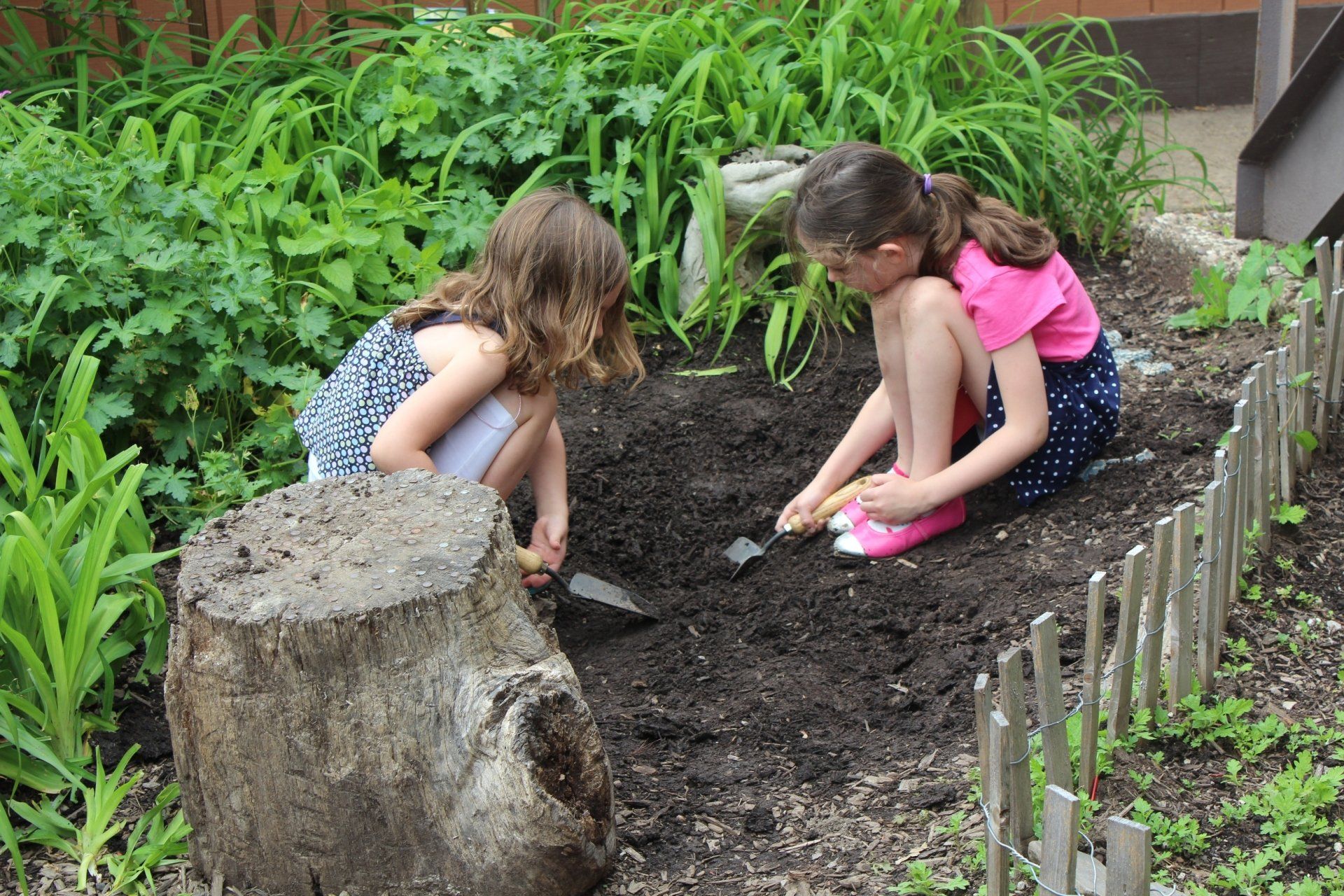
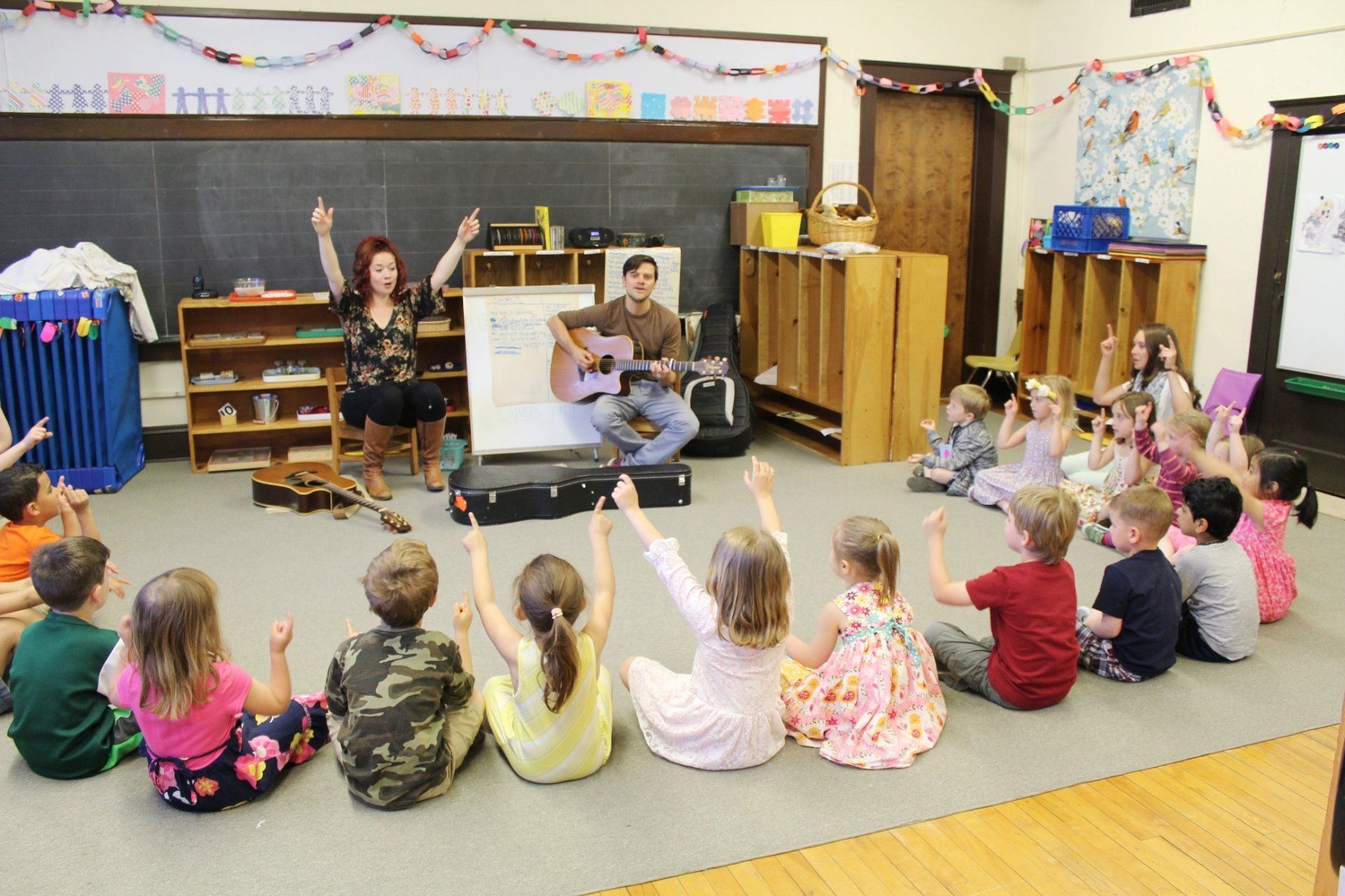
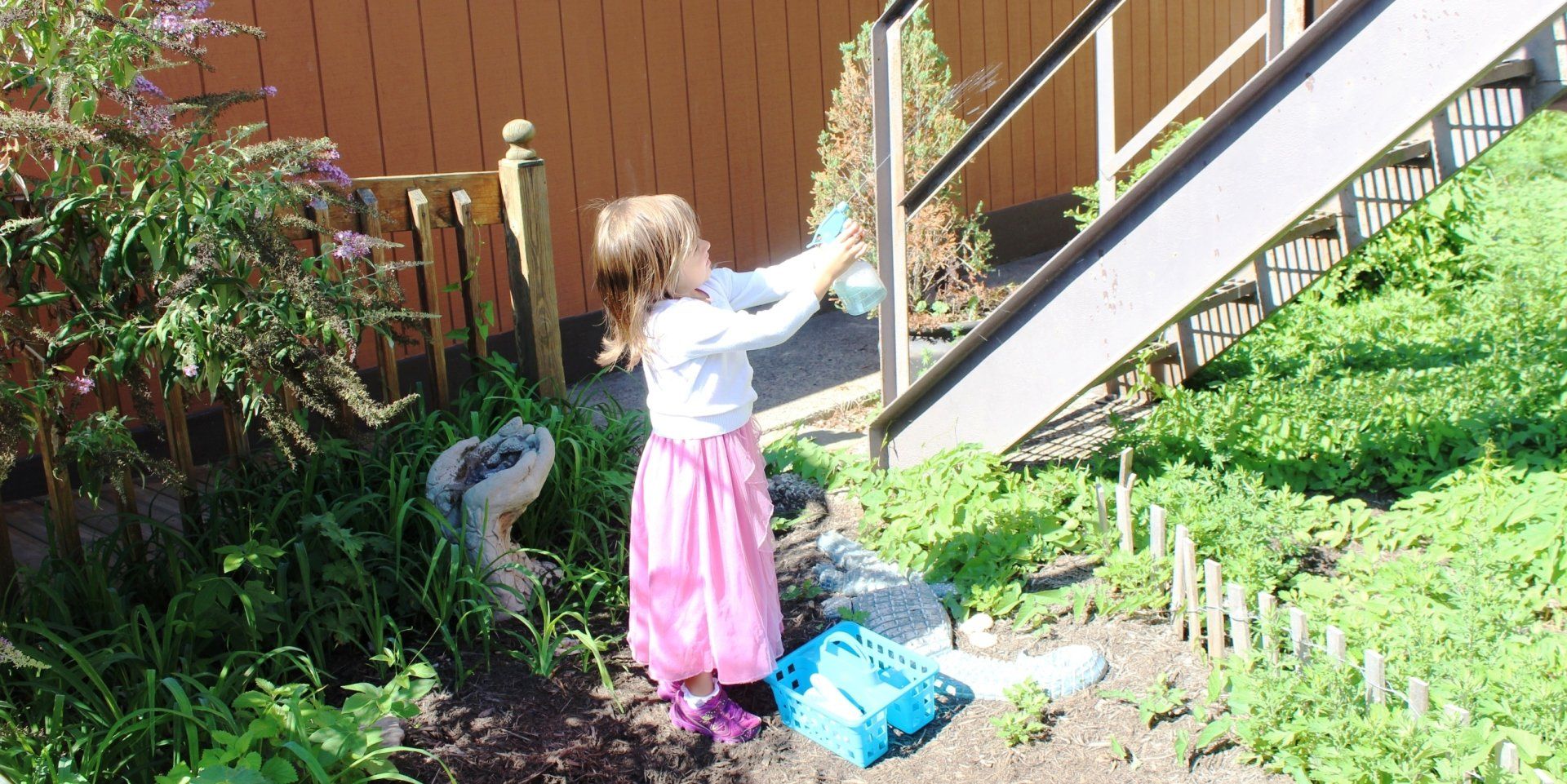
If you think your child would thrive in a Montessori environment, give us a call or schedule a tour online. We would love for you to visit our school and learn more.
Mountaineer Montessori School


